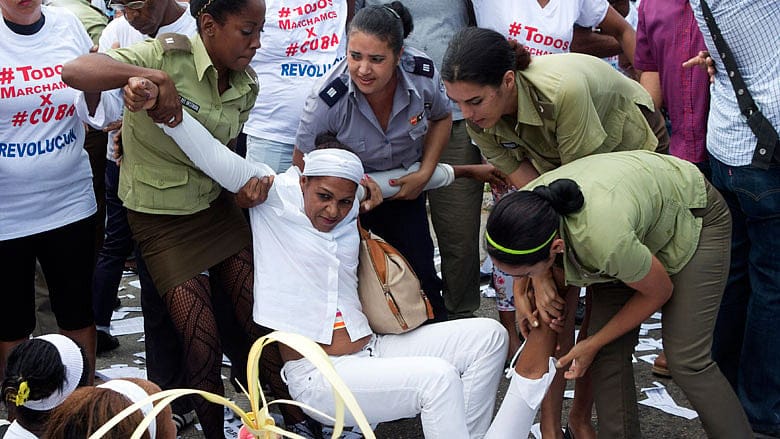Obama tweets from Havana hours after regime detains dissidents

(CNSNews.com) – President Obama landed in Cuba on Sunday afternoon, hours after dozens of dissidents from the Ladies in White movement were detained during a post-Mass, pro-democracy march, in what has become a weekly ritual of protest and arrest over almost a year.
"Obama, traveling to Cuba isn't fun," read a banner carried by the demonstrators. "No to human rights violations."

